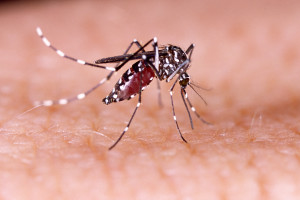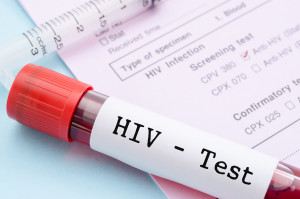 Much has been reported recently about the outbreak of the Zika virus. This disease is seeing a surge in diagnosed cases especially in Southern and Latin American countries. Zika virus poses great risks for pregnant women, due to potential health complications and side effects to unborn babies who contract the virus from their infected mothers. Such risks include the potential for birth defects, and in the most severe cases, even infant death. If you are pregnant or looking to become pregnant, you should be aware of the causes and risks associated with Zika virus so that you are prepared to keep yourself and your baby safe during and after your pregnancy.
Much has been reported recently about the outbreak of the Zika virus. This disease is seeing a surge in diagnosed cases especially in Southern and Latin American countries. Zika virus poses great risks for pregnant women, due to potential health complications and side effects to unborn babies who contract the virus from their infected mothers. Such risks include the potential for birth defects, and in the most severe cases, even infant death. If you are pregnant or looking to become pregnant, you should be aware of the causes and risks associated with Zika virus so that you are prepared to keep yourself and your baby safe during and after your pregnancy.
What is Zika virus?
The Zika virus is a usually mild disease that’s transmitted through the bite of an infected mosquito. Unfortunately, there is currently no vaccine for Zika virus, nor is there any current treatment.
What are the known side effects and symptoms?
Zika symptoms include fever, rash, headaches, red eyes, muscle and joint pain, and pain behind the eyes. Cases of death from Zika are extremely rare, but have been reported.
How does Zika virus spread?
The primary way that women can contract the Zika virus is by being bitten by an infected mosquito. Women can also contract the Zika virus from infected male sexual partners. A fetus whose mother has the Zika virus can become infected either during pregnancy or during delivery.
What health risks does the virus pose to babies?
It is believed that Zika virus can cause a condition known as microcephaly in infants who contract the disease in utero or during delivery. Microcephaly is a neurological condition in which a baby’s head develops much smaller than expected during pregnancy. Typically, a baby’s head grows as its brain grows, however in cases of microcephaly, the baby’s brain does not develop properly, or stops growing after birth, resulting in an undersized head. Other birth outcomes detected in fetuses infected with the Zika virus include: eye defects, hearing deficits, and impaired growth. In the most severe cases, microcephaly can be fatal.
What health risks does the virus pose to women who want to become pregnant in the future? According to the Centers for Disease Control and Prevention (CDC), it is believed that women who contract the Zika virus are not at risk for birth defects in future pregnancies after the virus has cleared from their blood. Evidence indicates that once a woman has been infected with the virus, she is likely to be protected from a future Zika infection.
What parts of the world face the greatest risk?
For women living in the continental United States, the odds of contracting the Zika virus are extremely low. While cases of Zika have been reported in the continental United States, they have only been cases of individuals who recently traveled to countries with Zika transmission. The CDC recommends that women who are pregnant, or looking to become pregnant, should not travel to the following countries, unless visiting an area with an elevation above 6,500 feet where mosquitos are less prevalent:
- American Samoa
- Aruba
- Barbados
- Bolivia
- Bonaire
- Brazil
- Cape Verde
- Colombia
- Commonwealth of Puerto Rico, U.S. territory
- Costa Rica
- Cuba
- Curacao
- Dominca
- Dominican Republic
- Ecuador
- El Salvador
- French Guiana
- Guadeloupe
- Guatemala
- Guyana
- Haiti
- Honduras
- Jamaica
- Marshall Islands
- Martinique
- Mexico
- New Caledonia
- Nicaragua
- Panama
- Paraguay
- Saint Martin
- Saint Vincent and the Grenadine
- Samoa
- Saint Maarten
- Suriname
- Tonga
- Trinidad and Tobago
- U.S. Virgin Islands
- Venezuela
If you are pregnant and have traveled to, or lived in, an affected country, see your OBGYN whether or not you’ve experienced any symptoms.
How can women protect themselves and their babies from Zika virus?
Women should minimize their risks of being exposed to Zika by avoiding countries with known outbreaks. Pregnant women and those trying to become pregnant who plan to travel to an impacted area should talk to their OBGYN prior to traveling. If you can not avoid traveling to a location were Zika has spread, wear long sleeves, pants, and socks, stay inside during peak mosquito hours, and apply forms of mosquito repellent safe to use during pregnancy. In addition, women can minimize their potential exposure to mosquitos by maintaining window screens and air conditioning in their homes, and eliminating places where mosquitos breed such as tires, buckets, and other areas where water pools.
What happens if you do contract Zika while pregnant?
Your doctor will consider administering an amniocentesis test to check your fetus for the virus, and you will likely receive ultrasounds every three to four weeks for the rest of your pregnancy to check for signs of microcephaly.
If you are pregnant of thinking of becoming pregnant, talk to your OBGYN today about the risks of Zika virus to make sure you and your baby are protected now and throughout your pregnancy.
More
 The terms HIV and AIDS are powerful. They can instill fear, conjuring images of a terminal disease that causes years of painful suffering, isolation, social stigmas, and the risk of infecting those you love. HIV and AIDS are serious diseases with deadly consequences, but when fear of a diagnosis leads to an avoidance of testing, you only put yourself, and your loved ones, at a greater risk. According to a recent survey published in AIDS and Behavior, the majority of people who do not seek out testing for HIV and AIDS are either afraid of the test or afraid of getting a positive diagnosis. If you are one of the millions of Americans avoiding the HIV test, put your fears aside and consider the dangers you put yourself in by living in denial.
The terms HIV and AIDS are powerful. They can instill fear, conjuring images of a terminal disease that causes years of painful suffering, isolation, social stigmas, and the risk of infecting those you love. HIV and AIDS are serious diseases with deadly consequences, but when fear of a diagnosis leads to an avoidance of testing, you only put yourself, and your loved ones, at a greater risk. According to a recent survey published in AIDS and Behavior, the majority of people who do not seek out testing for HIV and AIDS are either afraid of the test or afraid of getting a positive diagnosis. If you are one of the millions of Americans avoiding the HIV test, put your fears aside and consider the dangers you put yourself in by living in denial.
According to the U.S. Centers for Disease Control (CDC) approximately 13 percent of the more than 1.2 million Americans with HIV are unaware that they have the virus, which means they could be spreading it further without knowing they are putting others at risk. Noticing any unusual signs or symptoms that could be indicative of a sexual transmitted disease (STD) is scary, but just hoping that the symptoms will go away on their own will only leave you in greater danger. Diagnosing HIV early is crucial both to an effective treatment plan, and to stop its spread. Early detection also reduces rates of mortality and morbidity.
Know Your HIV Status
All women should know their HIV status for these four reasons:
- Many new HIV infections are caused by people unaware that they are infected.
- HIV medicines are more effective when treatment begins early.
- Starting treatment early can mean the best health for you, and for a longer time, before you develop AIDS or other infections. When HIV is not identified until it has progressed to advanced stages, treatment options are limited.
- If you are pregnant, there are precautions you can take to avoid passing HIV to your baby.
It can take between two weeks and three months after infection for HIV antibodies to be found in your blood. It may take up to three months for an HIV test to be positive if you have reason to believe that you may have recently been infected. Talk to your doctor about how frequently you should be tested, given your lifestyle and risk factors.
Get Tested
To help save your own life, and the lives of your loved ones, set your fears aside and get tested:
- At least once after becoming sexually active.
- If you are pregnant.
- If you are having unprotected sex with more than one partner.
- If you are, or have, injected drugs.
- If you are having sex with someone to get money or drugs in return, or have had sex with someone who has traded sex for money or drugs.
- If you have another sexually transmitted infection (STI).
- If you had a blood transfusion between 1978 and 1985.
AIDS and HIV are serious diseases, and being afraid of contraction is understandable, but living in denial that you could be carrying a serious illness won’t keep you or your loved ones safe. Early detection provides the only hope for effective treatment and longevity. Living a lifestyle that mitigates risk factors will help keep you safe. Even if you believe you are not at risk, getting tested will only reaffirm your peace of mind and help diminish the fear and stigma that surrounds testing.
And if you have any questions or fears, discuss them with your doctor. These discussions are 100% confidential.
More
 Everything You Need to Know About the Annual Influenza Vaccine
Everything You Need to Know About the Annual Influenza Vaccine
According to the Centers for Disease Control (CDC) the single best way to protect against the flu is to get vaccinated every year. Influenza is a serious disease that for some can lead to serious health risks, including hospitalization, and in the most severe cases, death. By learning about the vaccine and its benefits, you can make an educated decision regarding annual immunization.
Why should I get vaccinated annually?
The body’s immune response from vaccination declines over time. In addition, each flu season is different, with seasonal strains affecting individuals differently. Since flu virus strains vary every season, each year the vaccine is developed to protect against the influenza viruses that research indicates will be the most prevalent that season. An annual vaccine offers optimal protection from seasonal virus changes year-after-year.
Who should receive the vaccine?
The Advisory Committee on Immunization Practices (ACIP) recommends that everyone six months of age and older be immunized annually. Vaccination is highly recommended for people who are at high risk of serious complications from influenza, including children and seniors.
When is the best time to be vaccinated?
Flu season occurs from early October through late May. The earlier in the flu season you receive the vaccine the better, however even if you don’t get vaccinated in October, it is still in your benefit to get the vaccine at some point during the flu season. Even a January vaccination will limit your chances of a contracting a serious seasonal illness.
How quickly does the vaccine start to work?
Approximately two weeks after vaccination, antibodies develop in the body that protect against the virus.
Are there vaccine options available?
The flu vaccine is available in two forms: a shot or a nasal spray. Traditional “trivalent” vaccines are designed to protect against three flu viruses. There are also vaccine versions manufactured and approved for children under 18 and seniors over 65. Your doctor will recommend the vaccine version that is appropriate for you, as there are factors that can determine a person’s suitability for vaccination, including their age, health factors, and allergies.
Talk to your doctor about receiving the flu vaccine. Even mid-way through flu season, the influenza vaccine will provide protection for you and your loved ones from the flu virus and its dangerous side effects.
Check out this article for more information about myths and facts about the flu vaccine and flu season.
More
 Much has been reported recently about the outbreak of the Zika virus. This disease is seeing a surge in diagnosed cases especially in Southern and Latin American countries. Zika virus poses great risks for pregnant women, due to potential health complications and side effects to unborn babies who contract the virus from their infected mothers. Such risks include the potential for birth defects, and in the most severe cases, even infant death. If you are pregnant or looking to become pregnant, you should be aware of the causes and risks associated with Zika virus so that you are prepared to keep yourself and your baby safe during and after your pregnancy.
Much has been reported recently about the outbreak of the Zika virus. This disease is seeing a surge in diagnosed cases especially in Southern and Latin American countries. Zika virus poses great risks for pregnant women, due to potential health complications and side effects to unborn babies who contract the virus from their infected mothers. Such risks include the potential for birth defects, and in the most severe cases, even infant death. If you are pregnant or looking to become pregnant, you should be aware of the causes and risks associated with Zika virus so that you are prepared to keep yourself and your baby safe during and after your pregnancy.

